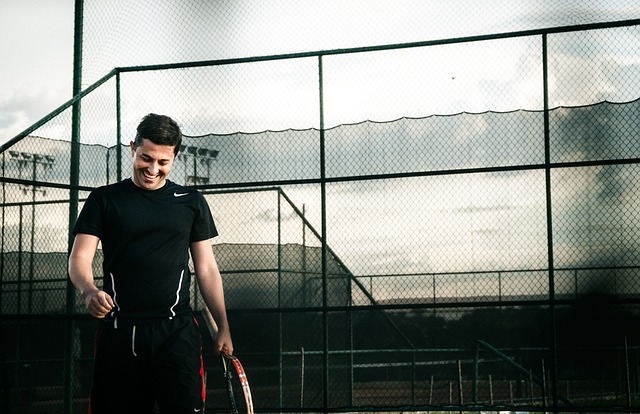Thank you so much for using Sporting Bounce to find a sports psychologist near you. Whatever your needs, from improving sport performance through to increasing motivation we will have someone who can help. |  |
You can find a Sport Psychologist near you by location on our easy-to-use directory on our homepage. You can also search our site by specialism to find Sport Psychologist who specialise in your sport or who can provide support on a particular issue. Whether you are looking for face-to-face, group sessions or one-to-one support search we will have someone who can help. All the sport psychologist list contact details and you can also message them directly through their profile.
Our directory lists over 210 Sport Psychologists worldwide. There are over 160 sport psychologists based in the United Kingdom, 25 in the United States, as well as others from Belgium, Ireland, India, the Netherlands and many other countries.
Each sport psychologist has an individual profile which they maintain. On this they clearly list their contact details, expertise, previous experience, and qualifications. Sometimes they also post additional material such as the typical cost of a session, whether initial sessions are free along with helpful articles and videos. You can also find helpful reviews on our sport psychologists to help you choose the best practitioner for your needs!
Yes! Many, if not all of the Sport Psychologist who list on our directory offer online support.
Whether you are searching for individual growth, peak performance, a personal best, or an Olympic medal in addition to sport psychologists we have a range of sport psychology related consultants on our directory. A sport psychologist works with athletes, coaches or teams to enhance their psychological approach to competition. Psychological interventions are generally focused on enhancing performance. However, a sport psychology consultant may also address other concerns, such as assisting an athlete in their return to competition following an injury. Some sport psychology consultants, if they have the right expertise, will also help individuals deal with broader issues around mental health.
Sport psychology is the scientific study of how psychological factors influence athletic performance and how participation in sport and exercise affects psychological and physical well-being. Many coaches and athletes testify to the importance of psychological factors in sport. Examples include an athlete performing poorly because he or she lacks confidence, an athlete who fails to cope with the pressure of competition, a team of talented individuals that consistently underachieve because of poor team dynamics, or an individual that is devastated by a traumatic injury.
A sport psychologist can help sports performers of any age across any level. The services of a sport psychologist are commonly used by professional athletes and teams, and those who represent their country. Many recreational and junior aspiring athletes have also used the services of a sport psychologists and we also often get enquiries from parents looking for a youth sport psychologist near them. We outline in detail what a sport psychologist does but simply a sport psychologist works with individuals or teams to enhance their psychological approach. Typically these mental training interventions are directed towards performance enhancement, although sometimes a sport psychologist is called upon to deal with other issues (e.g., helping an athlete during injury rehabilitation).
Working with a sport psychologist can significantly enhance an athlete's performance and well-being, but to get the most out of this collaboration, athletes need to approach it with the right mindset and strategies.
Be completely open about your challenges, fears, and goals. A sport psychologist can help you understand the mental aspects of your performance, but they can only do this effectively if you're transparent.
Work with your sport psychologist to establish clear, realistic goals. These can range from short-term objectives like improving focus during games to long-term aims like managing career transitions or reducing performance anxiety. Clear goals provide direction and a way to measure progress. Make sure the goals are challenging yet attainable, and that they align with your personal and athletic ambitions.
To maximize the benefits of sport psychology, it’s important to practice mental skills, just like physical ones. Techniques like visualization, mindfulness, and self-talk need regular practice to become effective tools in competition. Incorporate these strategies into your daily training routines, just as you would practice drills for physical skills.
Mental growth takes time, just like physical training. Regular sessions and consistent practice of techniques will yield better long-term results.
Maintaining consistent communication with your sport psychologist ensures that strategies remain relevant and effective.
We are a global directory and so the exact qualification required will depend on the country in which the sport psychologist practices. For example, in the United Kingdom sport psychologists are regulated by the Health and Care Professions Council. It is important to work with people who have had suitable training and are members of a professional organisation which follow a code of conduct. For example, a Chartered Psychologist with the British Psychological Society. Sometimes consultants will go by different titles related to sport psychology such as Certified Mental Performance Consultant, or will work in fields like performance psychology.
We try to ensure that the information presented is accurate for the members listed. However, please be aware it is your responsibility to verify, the background, qualifications and experience of any member whose services you are considering using. In particular please do ask the person you are seeing, what their qualifications are and whether they are a member of a professional organisation or register.
You can find out more information about the professional training routes in the following countries.
We have a over 750 blog articles on a wide variety of sports-related topics including psychology. We offer sport psychology videos that explain key concepts and provide practical advice on various topics.